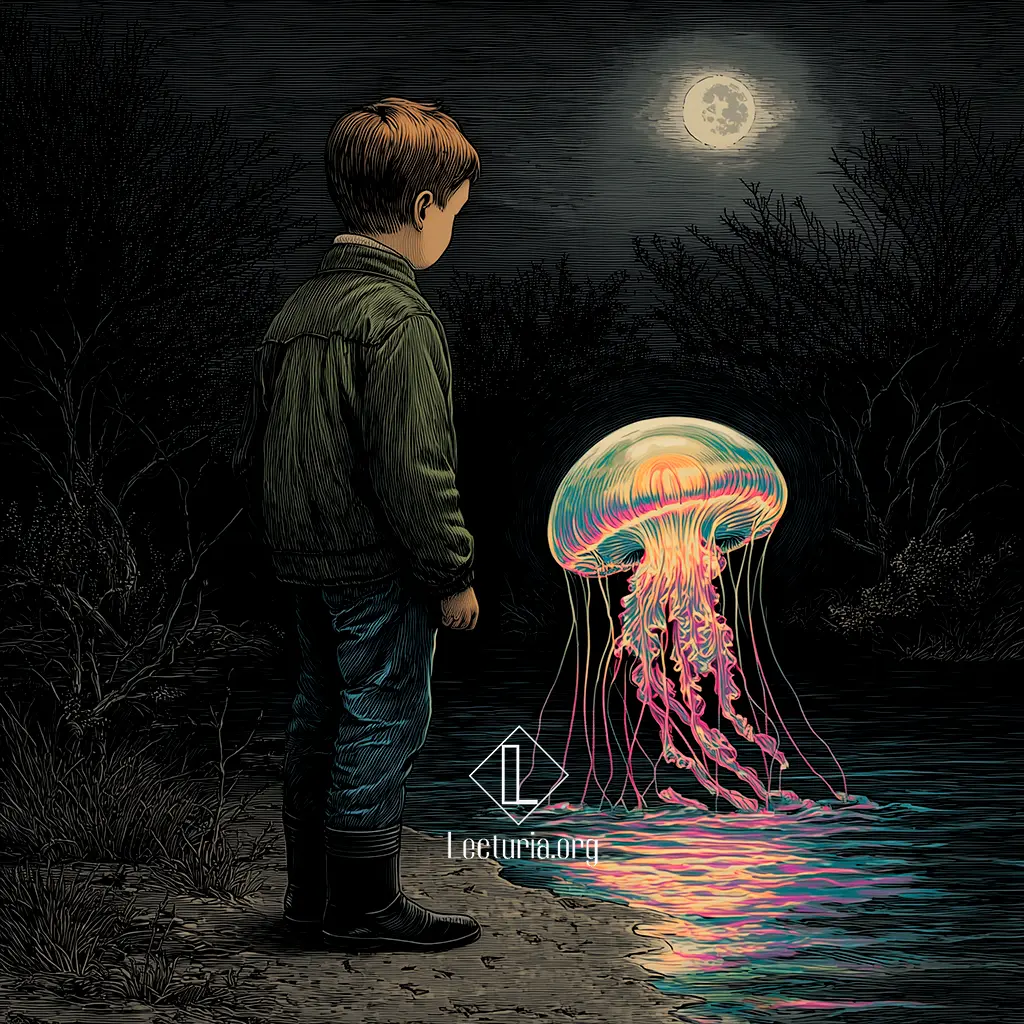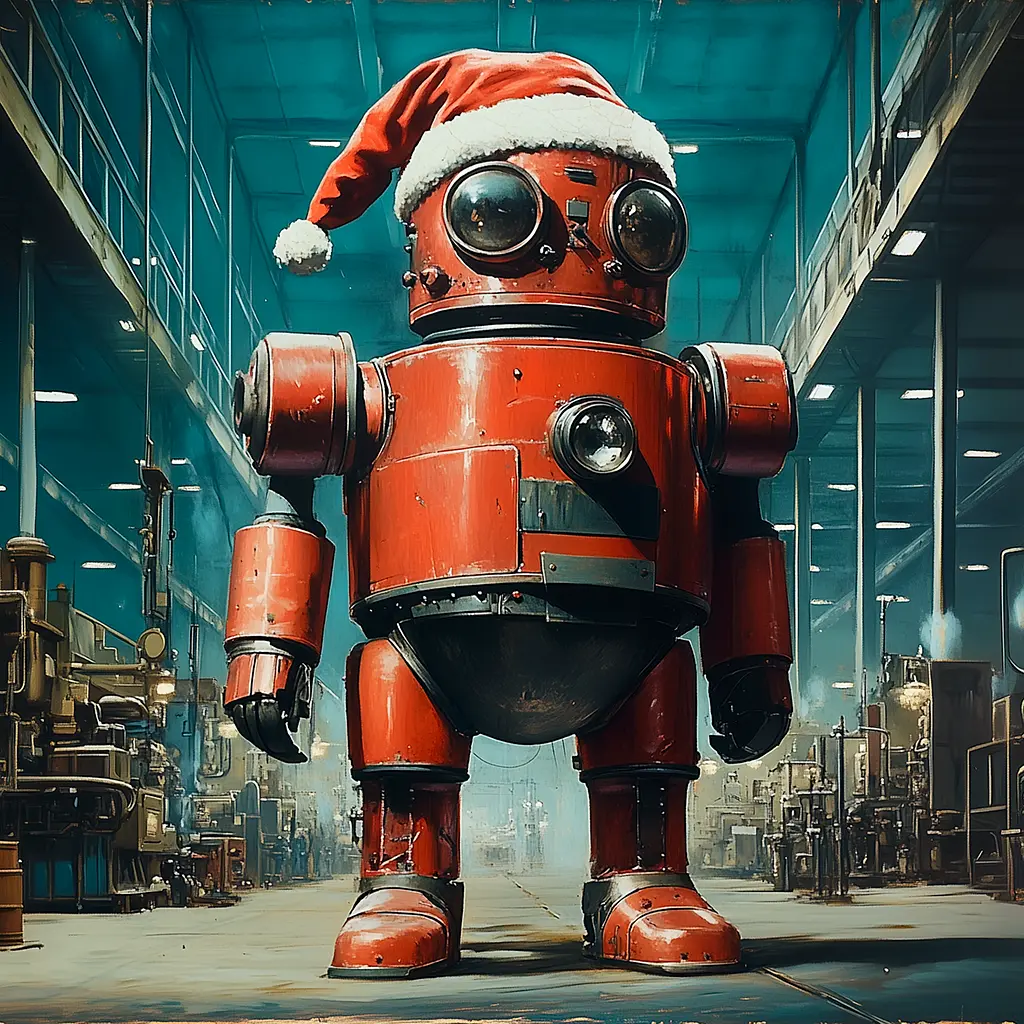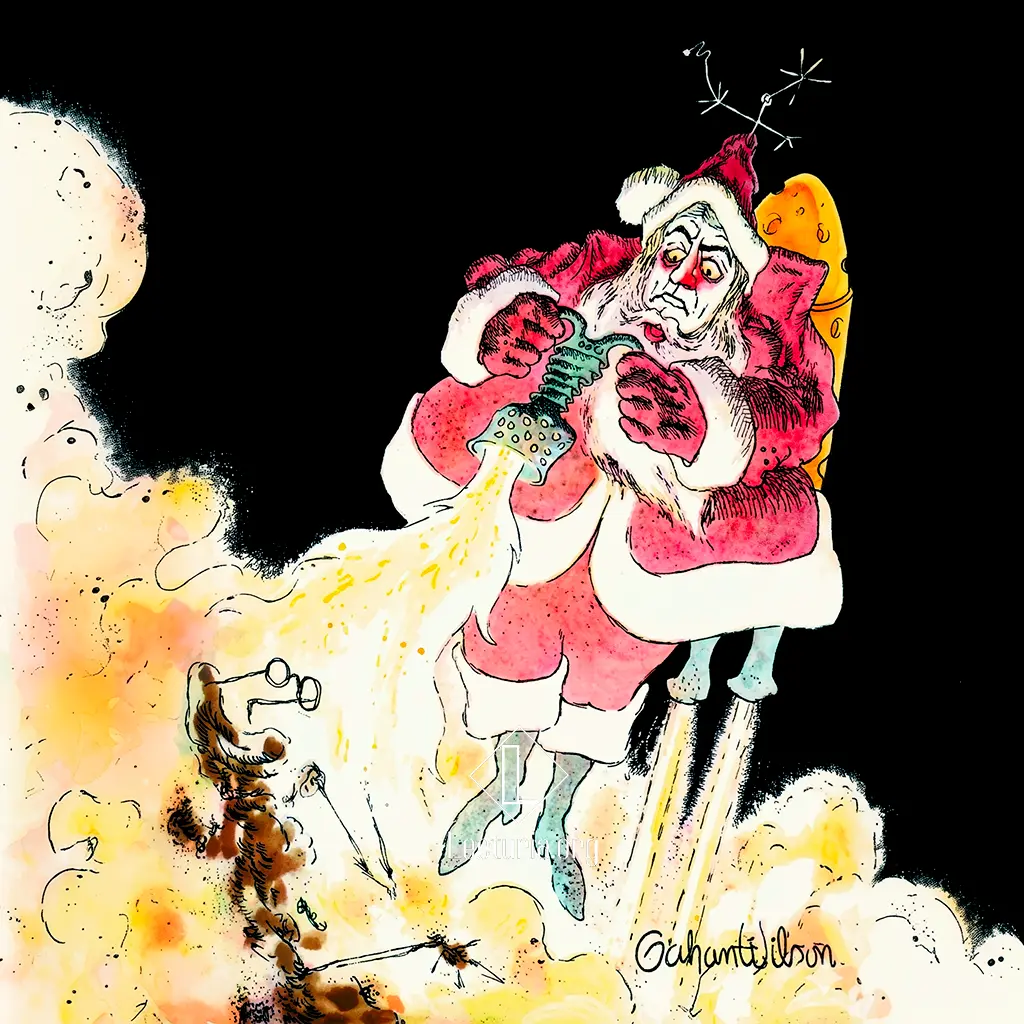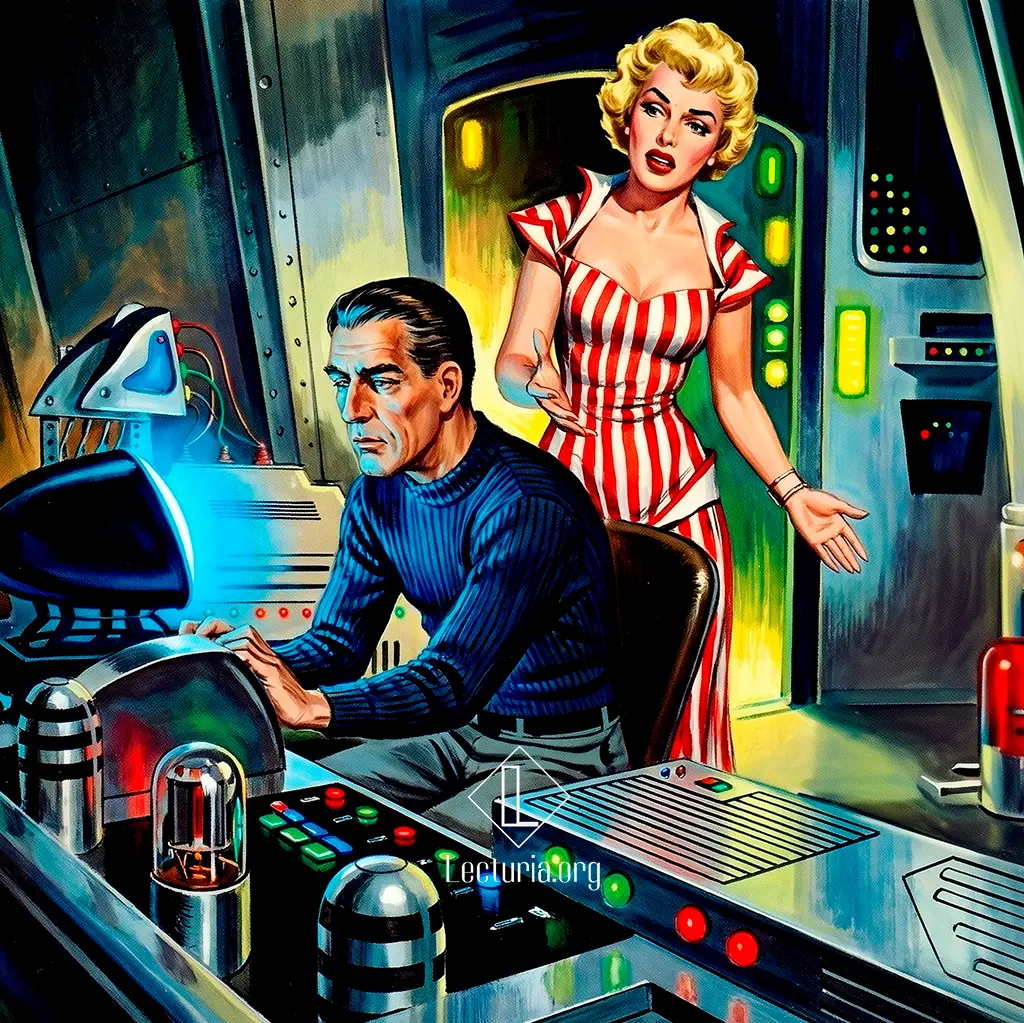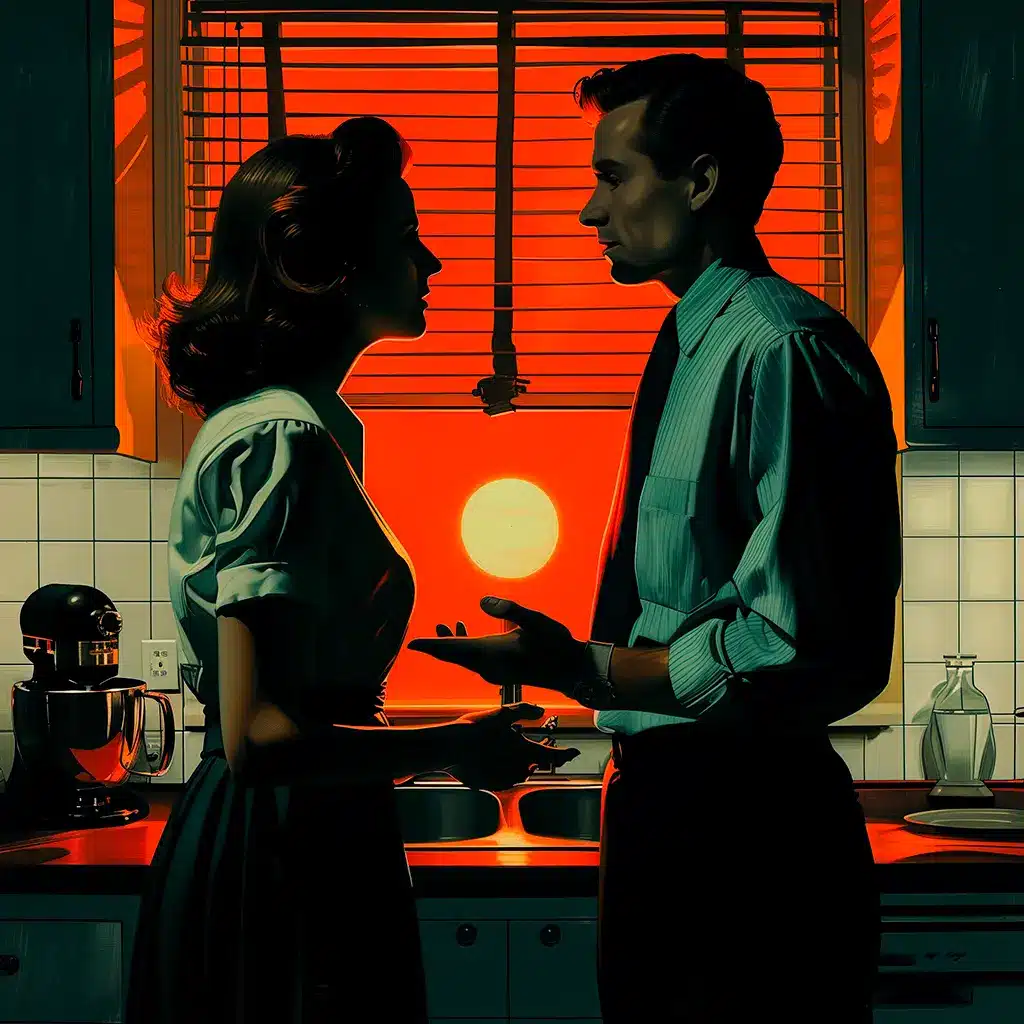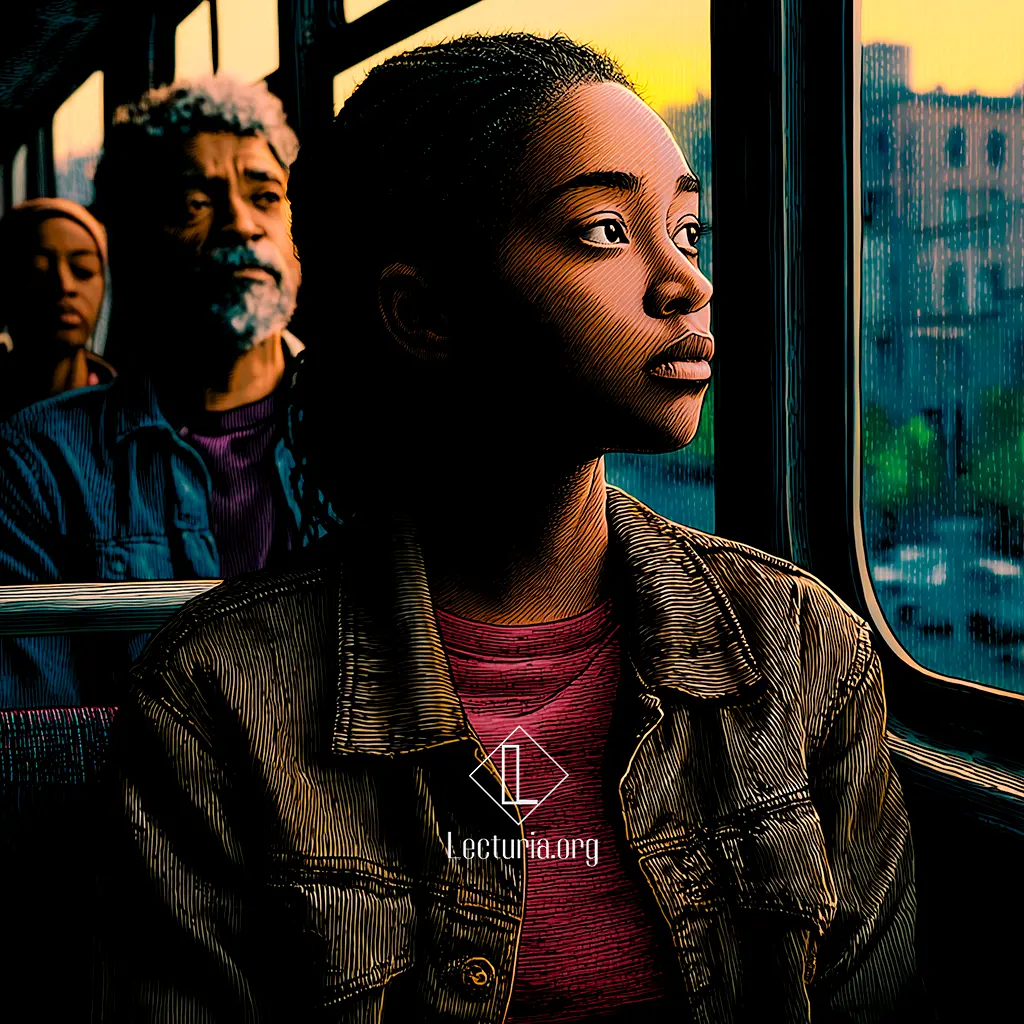Gordon R. Dickson: The Christmas Present
“The Christmas Present” is a short story by Gordon R. Dickson, published in January 1958 in The Magazine of Fantasy and Science Fiction. Allan Dumay, a six-year-old human child living with his family on the planet Cidor, befriends Harvey, a Cidorian being who dwells in the marsh near his home. On Christmas Eve, Allan and his mother try to explain to Harvey the meaning of this holiday imported from Earth. While mother and son wrap presents, the boy decides to make a special gesture toward his alien friend.
